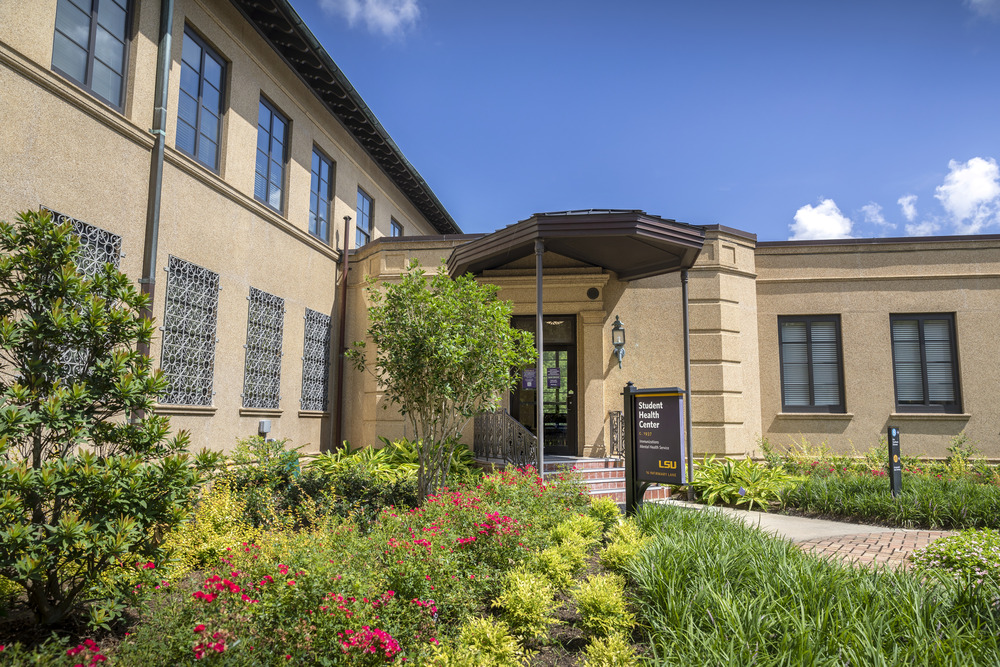Lighthouse Program
interpersonal violence support
If you or someone you know needs support, reach out. Your well-being is our priority.
Who Are We
Students can find free and confidential interpersonal violence prevention, support, and advocacy in the campus community through The Lighthouse Program. The program assists student-survivors of sexual assault, interpersonal violence, stalking, and harassment regardless of how long ago the incident occurred. It also helps to ensure the university maintains an accurate number of incidents that occur.
The Lighthouse team is comprised of confidential advocates who provide emotional support to student survivors. They connect you with essential resources and provide academic supportive measures to help you maintain academic success if your studies are impacted by trauma. Our commitment is to go above and beyond to aid in your recovery and well-being.
Contact Lighthouse
Located on the ground floor of the Student Health Center. Walk-in and scheduled appointments are available. For additional information, contact the office at 225-578-5718.
The Lighthouse Program follows a collaborative care model to provide survivors with options for recovery and support
- Coordinating evidence collection
- Obtaining medical care
- Obtaining emotional support
- Arranging safe housing
- Securing academic accommodations
- Filing a police report
- Filing a university judicial report with Title IX
- Additional referrals to appropriate services and resources are provided as needed.
- Connecting to Mental Health Service
Get Recovery & Support Assistance
If you or someone you care about needs Lighthouse services, fill out this brief form. All information will remain confidential.
Medical screening and treatment with or without evidence collection can be performed at any time.
The first 120 hours, or five days, after an assault are critical to the preservation and collection of forensic evidence. It is also a critical time for medical treatment for potential pregnancy or transmission of infections. A survivor may seek treatment with their private provider or a provider at the LSU Student Health Center. There is no charge for medical screening and treatment at the LSU Student Health Center.
Evidence Collection
An evidence collection kit can be collected up to 120 hours after an assault.
The Student Health Center partners with the East Baton Rouge Coroner’s Office to offer evidence collection by Sexual Assault Nurse Examiners (SANE), a professional is specially trained in collecting evidence and working with survivors of sexual assault. There is no cost in Louisiana for evidence collection if it is performed by a Sexual Assault Nurse Examiner (SANE) at a hospital or Student Health Center.
At the survivor's request, a police report will be taken at the time of the exam and law enforcement will follow through with investigating the crime. If a survivor is uncertain about reporting the crime, an evidence collection kit can still be collected and held for up to one year.
Preserve Physical Evidence
Do not bathe or douche. Do not brush teeth or ingest food/beverages. Do not change clothes if possible and do not wash the clothes worn at the time of the assault. Those clothes are considered evidence and may be collected by the SANE. If a survivor does not want to wear those clothes to the hospital/ Student Health Center, they can bring them in a paper bag. Do not use a plastic bag because it may compromise the evidence.
Support During Evidence Collection
No survivor has to go through an evidence collection kit alone. A Lighthouse Advocate or Sexual Trauma Awareness Response (STAR) Advocate can accompany a survivor at the Student Health Center or hospital, respectively, throughout the process, providing support and answering questions about the exam. An Advocate can also help a survivor connect with campus/community resources for additional support.
Evidence Collection After Hours
If you need support services or an evidence collection kit completed after hours, or on the weekend, please contact STAR (Sexual Trauma Awareness and Response) at 855-435-7827(STAR) or your local police department.
University Judicial Report
LSU considers sex discrimination and sexual misconduct in all of its forms to be serious offenses.
Any student who has been subjected to sexual misconduct has the right to report the conduct to the Campus Title IX Coordinator, Office of Student Advocacy and Accountability, or any other responsible reporting party.
The university judicial process is designed to be educational in nature and can only affect the accused student's status as an LSU student. A student who is found in violation of the Title IX and Sexual Misconduct policy will go through the university’s judicial process, and can potentially be suspended or expelled, among other sanctioned outcomes. Read more about The LSU Code of Student Conduct.
Campus Title IX Coordinator - 225-578-9000
Office of Student Advocacy and Accountability - 225-578-4307.
Police Report
Survivors and students-at-risk have the option of reporting to law enforcement and processing their case through the civil and/or criminal justice system. Cases can be processed through each system concurrently or separately. The Lighthouse Program can connect you to a legal advocate in the community for assistance with prosecuting a sexual assault or dating violence crime or obtaining a protective order.
after hours evidence collection information
For additional support and resources outside of business hours the following resources are available 24/7:
Campus
- LSU Police - 225-578-3231
- LSU Residential Life - 225-578-8663
Community
- Baton Rouge City Police - 225-389-3800
- East Baton Rouge Sheriff’s Office - 225-389-5000
- Iris Domestic Violence Center - 225-389-3001
- The Louisiana Foundation Against Sexual Assault (LaFASA) - 225-375-8995
- The National Center for Victims of Crime Hotline - 855-484-2846
- The PHONE - 225-924-5781 (call or text) | 24-Hour Crisis Hotline - 800-541-9706
- RAINN - 800-656-4673 (HOPE)
- Sexual Trauma Awareness & Response (STAR) - 855-435-7827 (STAR)
Navigating the Red Zone
The Red Zone is the time from the start of the fall semester through Thanksgiving break when college students are statistically at a higher risk for sexual assault. Starting a new semester can be exciting, but it also comes with new challenges. That’s why it’s so important to be aware, look out for each other, and know safety strategies to help you stay safe.
Before going out, create a detailed plan with your friends to avoid unsafe situations from beginning to end.
Stay mindful of your location and the people around you, especially in unfamiliar settings.
Only accept drinks you have seen made or bottles you have opened yourself. If you suspect your drink has been tampered with, do not drink it and notify someone immediately.
Consider downloading safety apps that offer features like emergency contacts, location sharing, and quick access to help. (i.e. LSU Shield App).
Only hang out with people you trust to act responsibly and adhere to the group's safety plan.
Establish a code within your friend group to signal when someone is feeling unsafe and needs help.
If something doesn’t feel right, trust your gut and remove yourself from the situation.
Understand and respect consent. Determine what is consensual for you, communicate your boundaries clearly, and honor others.
Familiarize yourself with campus security services. For non-emergency safe transport on campus by Tiger Patrol after midnight, call LSU PD at (225) 578-3231.
If you see something suspicious, report it to security and call 911 if necessary. If you suspect someone has been drugged, stay with them until help arrives.
** For LSU Students: ** If you are a victim of assault, seek support from the Lighthouse Program, Monday – Friday, 8:00 a.m. – 5:00 p.m. Call (225) 578-5718 to set up an appointment. For immediate assistance after hours, contact STAR at (225) 389-3047; the Iris Domestic Violence Center at (225) 389-3001; or call or text the PHONE (225) 924-5781.
Privacy Policy
Your privacy is our priority, and we ensure that your story and information remain confidential, with no obligation for mandatory reporting. While we do not require you to report, we are here to support you if and when you choose to do so. Our team is available to assist in reporting to the Title IX office, campus police, or local law enforcement, if you decide that is the right choice for you.
At the Lighthouse Program, we take the privacy and security of your personal information very seriously. All personal data collected through our services is stored securely on encrypted servers, accessible only by authorized personnel. We adhere to strict confidentiality protocols and comply with the Health Insurance Portability and Accountability Act (HIPAA), to ensure your information remains private.
We do not share your information with any third parties without your explicit consent, unless required by law in specific situations, such as imminent harm to yourself or others. Our team is trained in data privacy best practices, and we conduct regular audits to maintain the highest standards of security. Your trust is paramount to us, and we are committed to safeguarding your personal data every step of the way. To keep your medical information confidential, ensure that only you and those you specifically authorize have access to your MyChart account.




